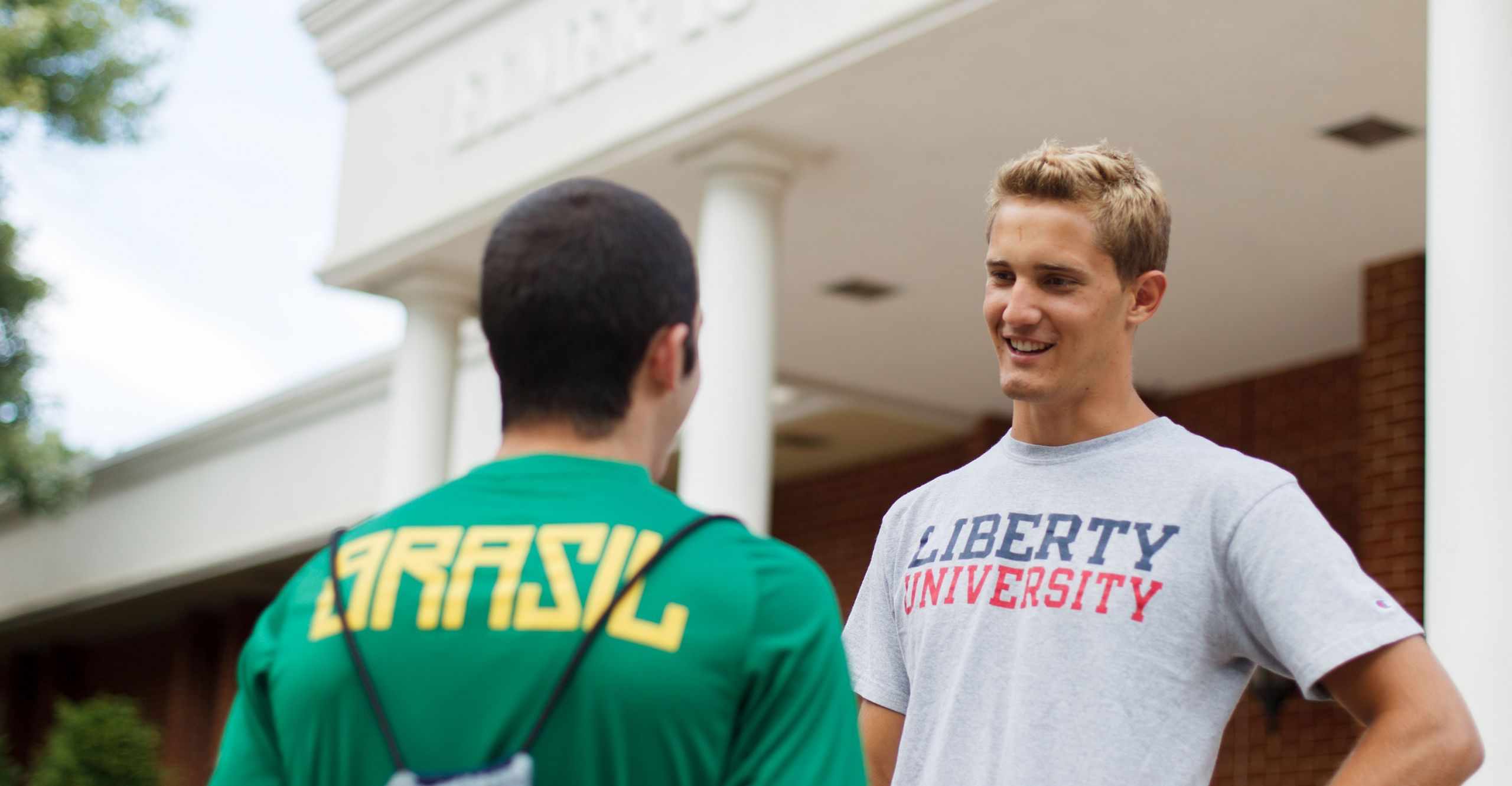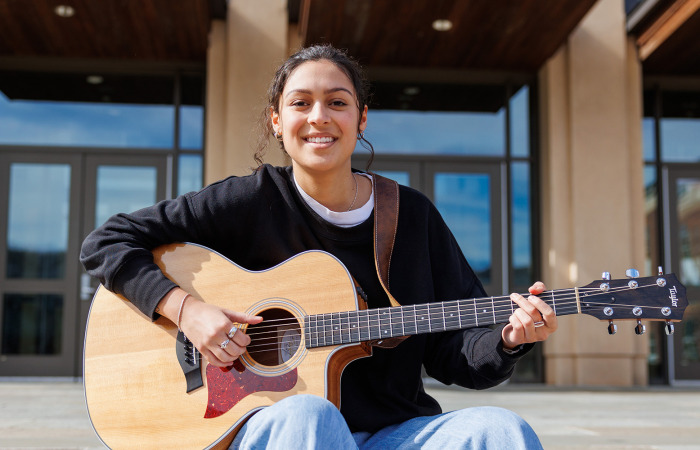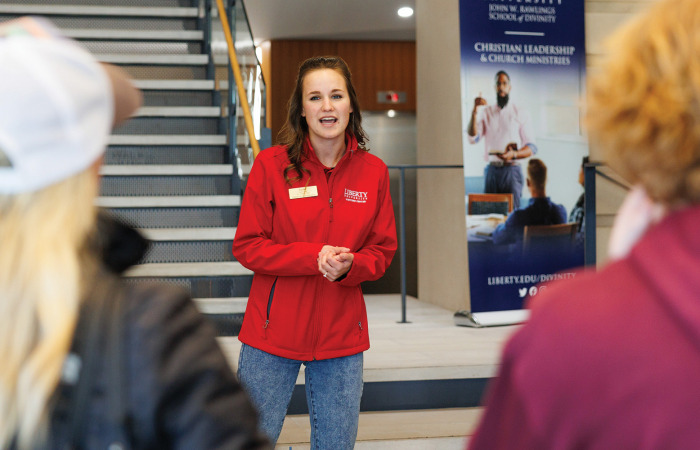Liberty University welcomed more than 4,400 new students for the 2013-14 academic year, but many of those weren’t new to college courses.
More than 1,000 college students decide each academic year to transfer their credits, from either a two- or four-year college, and make Liberty their new home.
The increase in the number of transfer students at Liberty has followed the same steady climb as residential enrollment, which now stands at more than 12,900 students. Transfer students arrive from all 50 states and 70 nations.
More students are being drawn to the area as Lynchburg, Va., is being transformed — largely because of Liberty’s rapid growth in the past decade — from a declining manufacturing town to one of the five pillars of Virginia higher education, which includes Blacksburg (Virginia Tech), Charlottesville (University of Virginia), Richmond (Virginia Commonwealth University, University of Richmond), and Norfolk (Old Dominion University).
Liberty remains the largest college in Virginia and offers 315 unique programs (some both residential and online).
Administrators would like to see more students, particularly those coming out of community colleges, view Liberty as a viable alternative for the third and fourth years of a college program leading to a bachelor’s degree. They have worked diligently to ensure a smooth transfer process.
Part of that includes working with community colleges across the state to secure articulation agreements, which outline specific courses that are guaranteed to transfer to Liberty as long as students meet grade requirements. The university currently has agreements with 23 schools in the Virginia Community College System (VCCS) (see the list below).
Transfer students must take a minimum of 15 credits through Liberty to earn an associate degree and 30 credits (along with 50 percent of degree-specific coursework) to earn a bachelor’s degree.
Students (age 22 and older) who are transferring in 60-plus credits and/or have a conferred associate degree from an accredited institution may have their SAT/ACT scores waived and be eligible for academic scholarships ranging from $1,000 to $5,000.
“Liberty University is transfer-friendly,” said Dr. Larry Hoezee, executive director of Resident Enrollment Management. “Our goal is to help students learn how easy it is to transfer into Liberty University.”
Hoezee said there are many options that allow potential transfer students to get a start on their degree. For instance, at the same time they are taking courses at another institution, they can enroll in classes with Liberty University Online, which costs about the same per credit hour as community colleges. Many students are finding that this helps them fulfill Liberty’s requirements for its general education and biblical or theological coursework.
The university’s transfer student recruiter, Catherine Scott (’11), is already emphasizing to potential transfer students the benefits of taking prerequisite courses online.
Scott attended a local community college in Los Altos, Calif., before transferring to Liberty to earn her Interdisciplinary Studies degree in studio art and business management. She is currently working on her master’s in management and leadership at Liberty.
“Transferring to Liberty was a great experience for me, and I want to make the process even better for additional students who want to earn a degree from Liberty,” she said. “I chose Liberty specifically because I wanted to leave the secular education environment and take Bible classes in addition to my major classes. I wish I would have known that taking the required courses with Liberty University Online, which gives you the flexibility you need while completing classes at a community college, can place students several steps ahead in the transfer process. This plan through Liberty Online is an affordable way to obtain your degree.”
Scott was able to double major in her chosen fields and still complete her degree in just two years at Liberty because of the Interdisciplinary Studies degree option, which she said is another “fantastic” way for transfer students to optimize their credits. The Bachelor of Science in Interdisciplinary Studies enables students to achieve a broader degree by incorporating the choice of at least two (but no more than three) cognates.
“Early planning is the key,” Hoezee said. Even high school graduates who are attending community colleges as a cost-saving measure but plan to transfer to Liberty later could benefit greatly from preplanning the courses they will take.
For more information on transferring to Liberty, visit www.Liberty.edu/Transfer or call (800) 543-5317.
Ron Brown contributed to this report.
Virginia Community College System (VCCS) schools with articulation agreements with Liberty:
Blue Ridge Community College
Central Virginia Community College
Dabney S. Lancaster Community College
Danville Community College
Eastern Shore Community College
Germanna Community College
J. Sargeant Reynolds Community College
John Tyler Community College
Lord Fairfax Community College
Mountain Empire Community College
New River Community College
Northern Virginia Community College
Patrick Henry Community College
Paul D. Camp Community College
Piedmont Virginia Community College
Rappahannock Community College
Southside Virginia Community College
Southwest Virginia Community College
Thomas Nelson Community College
Tidewater Community College
Virginia Highlands Community College
Virginia Western Community College
Wytheville Community College




